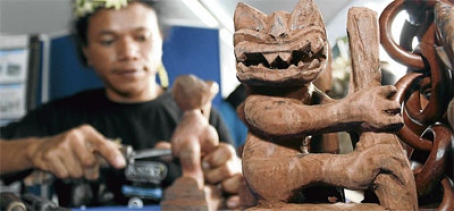Integrating knowledge
INDIGENOUS knowledge transfer is now a catchphrase in higher education. It is said to be closely tied to community engagement with emphasis on bonding between the two based on knowledge. The question is, how does this transfer occur?

Answers can be gleaned from 50 scholars who descended on Albukhary International University (AiU) recently for the University Leadership for Integrating Knowledge Diversity for Sustainability conference.
They shared experiences of dealing with local and traditional knowledge systems with respect to their sustainability within university curricula, including the spheres of both teaching and research as well as community services.
Organised in association with Multiversity and Citizens International, with support from the Higher Education Ministry, the conference was a follow-up to the Decolonising Our Universities seminar held last year.
It was aimed at creating academic paradigm shifts that may involve displacement of conventional Eurocentric knowledge systems, and their eventual replacement, or at least complementary to the knowledge systems that originate within communities and indigenous intellectual traditions.
The conferences were timely because of the universal admission that Western Social Science has failed to deal with the problems facing Western, indeed global societies. At the same time, it has caused the marginalisation of non-Western ideas that seek to solve problems, especially those faced in Asian and African societies.
The indiscriminate or even habitual tendency to create dependency on Western knowledge systems has resulted in many local innovative solutions being consigned to oblivion.
For example, "sustainability" is a functional ancient idea and knowledge-based, and not a "new" concept based on the 1987 Brundtland Report.
This extends to other knowledge including that of indigenous water conservation and irrigation systems, the logic of indigenous medical systems, ecological architecture, organic agriculture, traditional calendars, local entrepreneurship and traditional sustainable fishing practices from various parts of the world -- all of which were explored and debated during the recent three-day meeting.
Scholars and practitioners from indigenous communities ranging from Alaska to Aotoarea (New Zealand) were at hand to demonstrate the way advanced local knowledge and technology can complement, if not gradually replace, Western knowledge systems within their own societies.
Others were about the principles of negotiations between indigenous knowledge systems and Western knowledge based on partnership and equality.
International students at AiU, who come from more than 50 countries, also shared their experiences in dealing with local knowledge in their home countries.
The conference is expected to provide universities with a guide on their role once they decide to mainstream indigenous knowledge transfer as a core academic activity on a comparative basis for a start.
This will add more meaning to efforts to expand the current knowledge systems that are organically integrated into their communities and region.
The most promising approach appears to be moving towards other systems of knowledge which may have their own disciplinary character, methodology, validity and relevance.
This predominantly and naturally falls within the realm of indigenous knowledge. In 2000, the United Nations Educational, Scientific and Cultural Organization provided the right impetus when it recognised that sophisticated knowledge of the natural world is not confined to Science. Societies across the globe have developed rich sets of experiences and explanations relating to the environments they live in.
These "other knowledge systems" are today often referred to as traditional ecological knowledge or indigenous or local knowledge.
They encompass the sophisticated array of information and interpretations that guides societies around the world in their innumerable interactions with the natural milieu: in agriculture and animal husbandry; hunting, fishing and gathering; struggles against disease and injury; naming and explanation of natural phenomena; and strategies to cope with fluctuating environments.
It has taken a long time for the world to overcome its amnesia about these knowledge systems, which have remained valid and relevant despite the misting of all societies by the heavy blanket of Western conceptions of the world.
The "other knowledge systems" finally stand on a new footing, due largely to the efforts of the scholars assembled at AiU. They provided the much needed push to seriously consider new directions ahead for knowledge transfer and community engagement beyond the mere niceties of the so-called "third mission" of higher education to artificially reconstruct a place for itself in the community.
It is obvious from this conference that universities still have a lot to learn -- the community being an open source for new learning -- and they need to provide urgent leadership for this.
- The writer is the vice-chancellor of Albukhary International University
